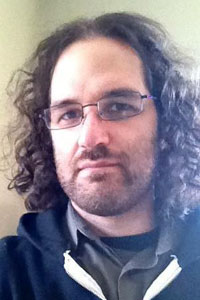Bill talks about recovery as a new paradigm and its influence on treatment systems. He goes on to describe the new recovery advocacy movement and new recovery institutions and organisations. Most of this is occurring at a grassroots level.
‘Experiencing Recovery – Part 9′ by William L. White: Recovery Advocacy and New Recovery Support
‘Reflections on a Pathologized Adolescence and a Vision For The Future’ by Laura Delano
 I’ve been working on a larger writing project for a while now, and am currently focusing on my ninth grade year – the year I turned fourteen, the year I began to think about suicide, the year I discovered the temporary satisfaction that comes from escaping oneself, and the year I met my first psychiatrist and said goodbye to myself.
I’ve been working on a larger writing project for a while now, and am currently focusing on my ninth grade year – the year I turned fourteen, the year I began to think about suicide, the year I discovered the temporary satisfaction that comes from escaping oneself, and the year I met my first psychiatrist and said goodbye to myself.
For many years, I carried great shame about all that unfolded during that year – about the things I did, the secrets I kept, the harm I caused, the darkness I was so immersed in.
Today as I write, I am full of love for that lost girl I once was, for I see that I was on a universal, archetypal search – for answers to my profound emptiness, to why I yearned to die, to why I felt so utterly convinced that I didn’t fit into the world.
I was searching for self-worth, for peace of mind, for a sense of safety in a world I didn’t understand. I was searching for the kinds of things that all young people search for, only I was never presented an opportunity to realize this.
‘Six First Steps for Building Communities of Emotional Wellness’ by Matthew Cohen
 I’ve been writing a strategic document for developing a healing community for Aboriginal people here in Perth, so this blog from Mad in America is particularly pertinent. Matthew is a very interesting person – please check out his website.
I’ve been writing a strategic document for developing a healing community for Aboriginal people here in Perth, so this blog from Mad in America is particularly pertinent. Matthew is a very interesting person – please check out his website.
‘I am being asked by a number of grassroots communities to facilitate a dialogue about how they can better welcome and support individuals who experience emotional distress. This is a challenge for many aspiring peers and allies in a culture where responsibility for our individual well-being has been increasingly transferred to psychiatrists, doctors, and other health professionals.
Even among our movements for alternatives, we often find ourselves replicating disempowering patterns of relying on experts, institutions, and formalized programs to help us through our trying times.
‘State of the New Recovery Advocacy Movement: Achievements, Part 1’ by Bill White
 Bill White seems to be pumping out his writings at the moment. I didn’t think this prolific writer could be even more productive, but I was wrong. Here’s a blog that links to a variety of Bill’s recent writings.
Bill White seems to be pumping out his writings at the moment. I didn’t think this prolific writer could be even more productive, but I was wrong. Here’s a blog that links to a variety of Bill’s recent writings.
I was particularly interested in Bill’s piece on the state of the new recovery advocacy movement in the US. This is essential reading, so I thought I’d devote some blogs on a multitude of points raised by Bill. Here’s the first:
‘New Recovery Advocacy Movement Achievements
We would not be here today if those at the center of this emerging movement in the late 1990s and early 2000s had not made some very good decisions. I want to record some of the decisions that in retrospect I think were most important.
The 4th UK Recovery Walk Film
The 5th UK Recovery Walk takes place on 22nd September, 2013 in Birmingham. Hope you folks in UK can make it.
Here’s the film from the 4th UK Recovery Walk in Brighton. Inspirational. Well done all involved in the making of this film.


